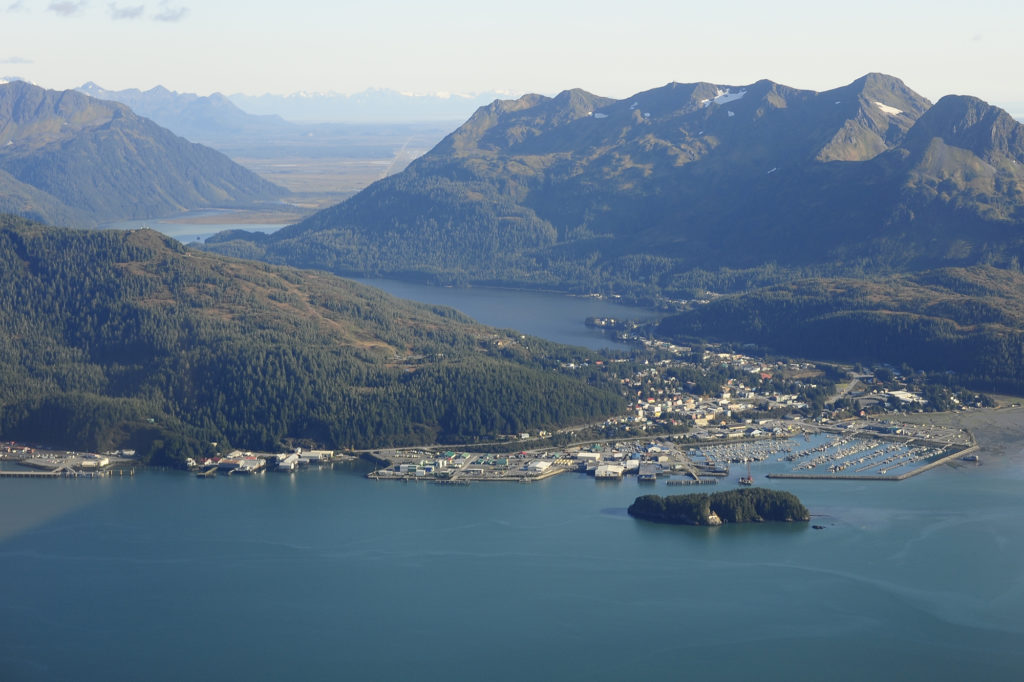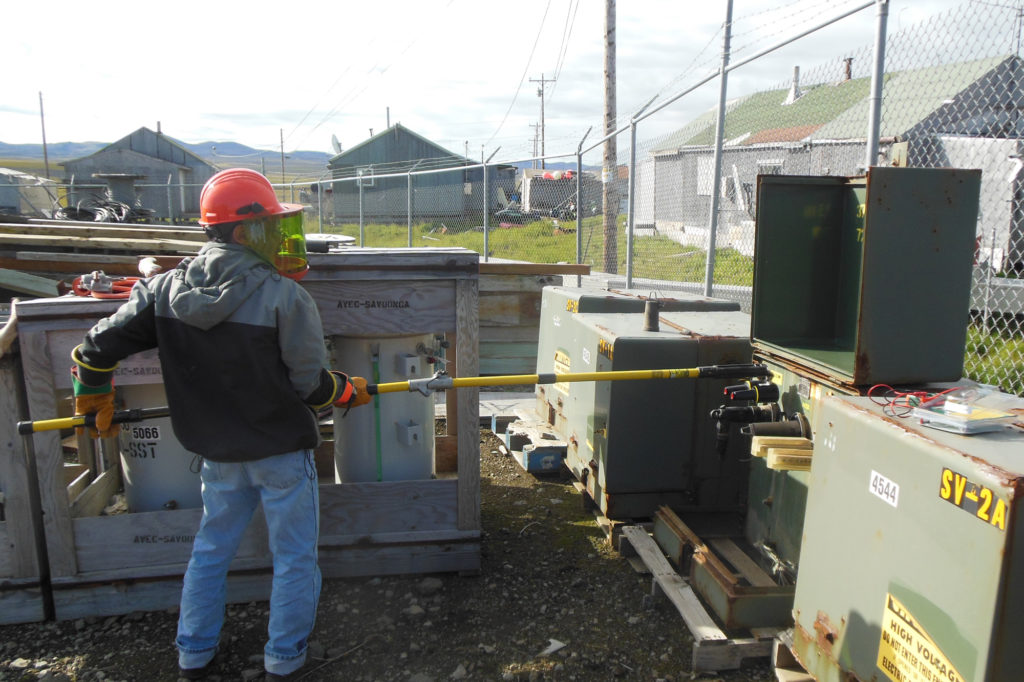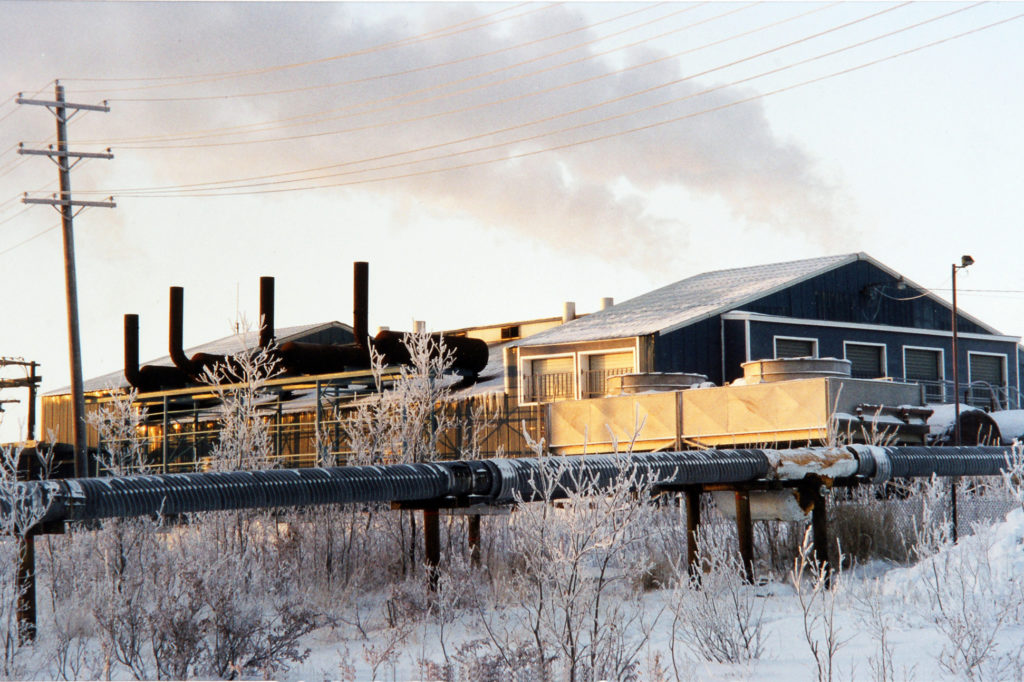
Editor’s note: After the publication of this story, members of the Alaska House of Representatives voted 31-7 on July 29 to approve the state’s capital budget, eliminating the threat of massive budget cuts that included subsidies for rural power, higher education, and dozens of other programs.
Declining oil and gas revenues and a political fight over the size of Alaskans’ annual dividend check could lead to huge increases in utility bills for thousands of the state’s electric co-op members. Co-op-served communities could also be hit with higher costs for electricity used to provide essential services like water treatment and sanitation.
“More than 84,000 Alaskans in 194 communities are facing higher electric bills resulting from the current lack of funding for the Power Cost Equalization program,” said Crystal Enkvist, executive director of the Alaska Power Association. That means consumers could see some of the highest kilowatt-hour costs in the nation beginning in August.
PCE provides economic assistance to some of the more isolated rural communities and residents in Alaska, where the cost of electricity can be three to five times higher than for consumers in more populous areas of the state. APA has made preservation of the program, administered by the Alaska Energy Authority, a perennial priority.
Under Alaska’s constitution, the PCE endowment and other similar funds are “swept” into the state’s Constitutional Budget Reserve at the end of each fiscal year. Typically, the legislature votes to reverse the sweep and put the money back in the funds on July 1.
This year, because of disagreement over the size of the Permanent Fund Dividend—the share of the state’s oil wealth that is distributed to individual Alaskans each year—15 Republican members of the state House withheld support to reverse the sweeps. This effectively defunded the PCE endowment for the 2020 fiscal year.
“We’ve contacted all 60 legislators, met with the Alaska Energy Authority, launched a media relations effort, and kept our members updated on new developments,” said Enkvist, adding that the statewide association’s 22 co-ops have been emphasizing the devastating impact of the cuts to their members.
“It’s ‘all hands on deck’ to get funding from somewhere— anywhere—by the end of July, because if funding doesn’t materialize, we may have to post PCE at a zero rate,” said Meera Kohler, CEO of Alaska Village Electric Cooperative. The result could mean co-op members would bear the total costs for their electricity service.
Kohler said failure to resolve the funding issue could as much as double AVEC’s residential rates. The Anchorage-based co-op serves 58 communities.

Increases of as much as 200% in municipal public facility costs for street lighting, water and sewer system operations and energy for public buildings are possible, said Kohler. AVEC communities receive $11 million annually from PCE, a 40% share of the total program.
“For Cordova Electric Cooperative, our most likely scenario is a revenue shortfall of $500,000, shared equally across all rate classes,” said Clay Koplin, the co-op’s CEO. He is also the mayor of Cordova, a city of 2,200 on the Prince William Sound.
Like many local officials across the state, Koplin is concerned about depleting savings and investment accounts to cover the city’s lost revenues. Alaska has no sales or income taxes and relies heavily on oil and gas industry revenues to cover most public spending.
Alaska Gov. Michael J. Dunleavy vetoed $444 million in state spending on June 28 and has proposed a series of cost-offset measures, draining dozens of accounts used to subsidize various programs.
“This might be palatable if it were the only option, but using a portion of the Permanent Fund earnings that pay out the personal checks to citizens is being taken off the table,” said Koplin. Dunleavy has withheld consideration of direct payments to Alaskans from funding cuts prompted by the sweeps.

PCE funds have traditionally provided a subsidy offsetting the cost of up to 500 kWh for residential utility customers in rural Alaska, including members of electric cooperatives.
“Without the PCE program, our members could see an increase up to about 39 percent added to their monthly electric bill,” said Martin Shroyer, CEO and general manager of Kotzebue Electric Association. “We have elders and others who are on fixed incomes who already have a tough time paying for electric, water/sewer, garbage pickup and heating fuel,” he said. “If the PCE program goes away, a lot of families in rural Alaska will be hurt.”
Derrill Holly is a staff writer for NRECA.